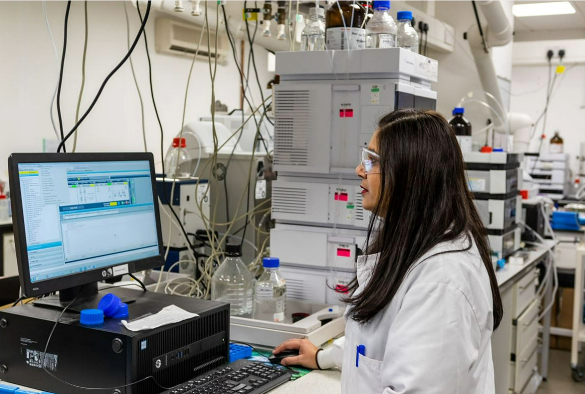
The Northwest of England has received £5m to become a global hub for Industrial Biotechnology (IB) innovation, thanks to the launch of the Industrial Biotechnology Innovation Catalyst (IBIC).
IBIC is a collaborative initiative, led by The University of Manchester, working with partners including the University Liverpool, aimed at harnessing the region’s scientific and research expertise to accelerate knowledge exchange, impact, and innovation, while fostering a more productive, research-intensive economy and promoting sustainability.
Industrial Biotechnology is a multi-disciplinary field that utilises biological resources for everyday product development, including food, fuels, and medicines. It is poised for significant growth with a market potential exceeding £34 billion in the UK alone.
Together with the Universities of Liverpool, Manchester Metropolitan, Bolton and Salford, The University of Manchester will lead a consortium of academia and industry and create a cohesive ecosystem for IB innovation. The new £5million EPSRC Place-Based Impact Acceleration Account (PBIAA) builds on an existing critical mass of IB expertise in the Northwest including the Manchester Institute of Biotechnology’s pioneering work, major healthcare and biomanufacturing companies like AstraZeneca, Teva, Croda, and Unilever. As well as thriving SME innovation zones, including Daresbury, Liverpool Knowledge Quarter, and Alderley Park, the UK’s largest life science campus.
Professor Claire Eyers, Associate Pro Vice Chancellor for Research and Impact in the Faculty of Health and Life Sciences at the University of Liverpool, said: “The University of Liverpool is one of the UK’s leading research-intensive higher education institutions. We pride ourselves in having a long history of working with a variety of organisations and this collaboration allows for the further application of our world-class research to solve real-world challenges.
“We very much look forward to working with our regional partners to combine knowledge and expertise and create meaningful and lasting impact for a thriving north-west innovation ecosystem.”
Professor Aline Miller, Principal Investigator, Professor of Biomolecular Engineering and Associate Dean for Business Engagement and Innovation at The University of Manchester, added: “The IBIC will unite industry, academia, and local government to produce a complete pipeline of industrial biotechnology innovation that can be used to address imperative global challenges such as climate change and meeting net zero targets, while creating a more sustainable society.
“We are excited to work with our partners to create this ecosystem that will support the thriving community here in the Northwest. We are fortunate that we have such good foundations to build on which naturally allows us to take the next step to making the region, and the UK, leaders in industrial biotechnology.”
Science Minister, George Freeman, said: “Biotechnology delivers for our health, planet, prosperity and beyond and by targeting the North-West through our £41m place-based investment, we can build on the region’s thriving innovation cluster and better integrate the UK’s renowned research activity.
“Our investment will also create hundreds of new jobs, projects and businesses that will in turn drive investment to the region to grow the local and wider UK economy.”
Funding has come from the Engineering and Physical Sciences Research Council, which is part of UK Research and Innovation. The launch of IBIC is expected to stimulate significant investments, create numerous job opportunities, foster collaborative projects, and drive economic growth across the region.